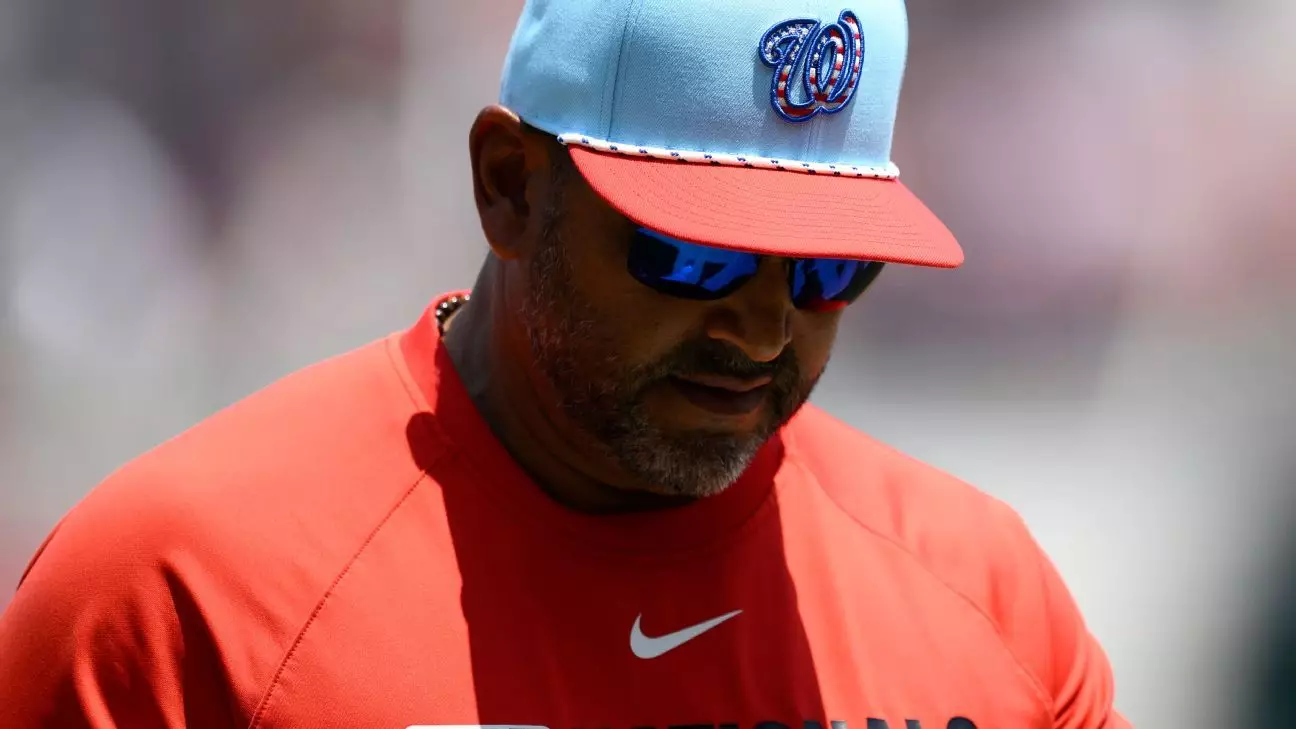The washington Nationals’ decision to remove both their president of baseball operations, Mike Rizzo, and manager Davey Martinez underscores a deep malaise within the organization—a franchise stuck in a cycle of underachievement and stagnation. While some may interpret this as a bold move towards renewal, it more accurately reflects a desperate attempt to dodge the hard truths of failure. The Nationals, once champions in 2019, have become a symbol of squandered potential and mismanaged expectations. Such drastic leadership shake-ups often fail to address systemic issues rooted in flawed organizational strategies, and in this case, they expose an alarming disconnect between ambitions and results.
Rizzo’s tenure, spanning over a decade, initially brought hope with the team’s unexpected World Series victory. Yet, that success has become a distant memory, overshadowed by years of mediocrity and lack of coherent rebuilding strategies. The organization’s inability to develop pitching or bolster its lineup sufficiently reveals a fragility at the core of its long-term planning. The decision to oust key figures after a miserable season of 37-53—particularly an embarrassing sweep at home—demonstrates an urgent, but ultimately superficial, attempt to placate disillusioned fans and stakeholders. It raises the question: Is this about genuinely fostering a culture of growth, or merely an act of damage control?
The Nationals’ mistakes extend beyond mismanagement; they highlight a broader issue within baseball—the reluctance to fully embrace sustainable rebuilding in favor of quick fixes. The team’s winter moves, characterized by minor signings and strategic trades rather than significant investments, illustrate a reluctance to commit wholeheartedly to long-term development. Investing in young talent like James Wood and MacKenzie Gore is commendable, yet these efforts seem disconnected from a clear vision for competitive success. Instead, the organizational inertia persists, with a young core that is still far from mature and still heavily reliant on hope rather than proven performance.
The Illusion of Change and What’s Really at Stake
The leadership shake-up, with Mike DeBartolo stepping in as interim GM, is unlikely to be the silver bullet the Nationals desperately seek. Such interim appointments often serve as placeholders, giving management breathing room without confronting deeper structural flaws. Naming a new manager on short notice, just before the team begins its series against the Cardinals, indicates a reactive rather than strategic approach to change. It’s a facade of renewal, masking a lack of clarity on how to chart a sustainable path forward.
Washington’s recent shortcomings reveal a persistent failure to adapt in a competitive league that demands both strategic financial commitments and innovative talent development. The team’s limited offseason expenditures, despite industry speculation to the contrary, exemplify a cautious, perhaps even timid, approach that is mismatched with the reality of a sport driven increasingly by high-caliber signings and extensive farm systems. Their focus on marginal improvements—signing free agents like Bell and Soroka, trading for Lowe, and re-signing key players—does little to mask the underlying issues of talent deficiency and organizational direction.
The franchise faces an existential crisis: whether to continue patchwork rebuilds and hope for breakout seasons, or to genuinely commit to rebuilding with a long-term perspective. Unfortunately, this leadership change suggests the former. It’s a quick fix designed to appease fans and stakeholders, rather than a strategic pivot aimed at transforming the franchise’s fortunes. The Nationals’ recent history of underperformance also questions the efficacy of their talent pipeline. High hopes for young players do not translate into immediate success, especially when the team’s offense remains anemic and pitching continues to falter.
Turning Point or Temporary Reset?
This overhaul might serve as a short-term reset, but it should not be mistaken for a fundamental shift in approach. The Nationals resemble a franchise caught in limbo—uncertain whether to accept mortality as a rebuilding project or chase short-lived success. Their recent history suggests that they lean toward the latter, clinging to the hope that talented rookies and cautious signings will turn the tide.
In truth, Washington’s struggles reflect larger systemic issues in baseball: the undervaluation of developing robust organizational systems, the hesitance to make bold investments, and a cultural reluctance to accept the pain of rebuilding if it means eventual success. The decision to remove Rizzo and Martinez might bring momentary relief, but unless the organization commits to comprehensive strategic reform, the team risks being adrift for years to come—caught in a cycle of fleeting hope and inevitable disappointment.
The franchise’s recent failures serve as a stark reminder that leadership alone cannot rectify organizational deficiencies. Genuine progress requires a cultural shift—one that prioritizes patience, strategic investment, and a long-term vision over quick fixes and superficial change. Until then, the Nationals’ front office remains an emblem of missed opportunities and unfulfilled potential—a team that talks of renewal but is perpetually stuck in the same frustrating place.

Leave a Reply